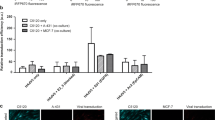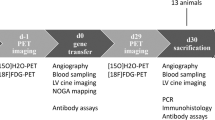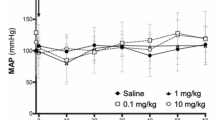Abstract
When NIH 3T3 fibroblasts were transduced with a retroviral vector containing a cDNA for porcine pancreatic elastase 1 and cultured in the presence of affinity-purified human plasminogen, the exogenously added plasminogen was digested to generate the kringle 1–3 segment known as angiostatin, a potent angiogenesis inhibitor. This was evidenced by immunoblot analysis of the plasminogen digests using a monoclonal antibody specifically reacting with the kringle 1–3 segment, and by efficient inhibition of proliferation of human umbilical vein endothelial cells by the plasminogen digests isolated from the culture medium of 3T3 fibroblasts. However, when Lewis lung carcinoma cells were transduced with the same vector and injected subcutaneously into mice in their back or via the tail vein, their growth at the injection sites or in the lungs was markedly suppressed compared with the growth of similarly treated nontransduced Lewis lung carcinoma cells. Nevertheless, the transduced cells were able to grow as avidly as the control cells in vitro. Assuming that the elastase 1 secreted from the transduced cells is likely to be exempt from rapid inhibition by its physiological inhibitor, α1-protease inhibitor, as shown in the inflammatory tissues, the elastase 1 secreted from the tumor cells may effectively digest the plasminogen that is abundantly present in the extravascular spaces and generate the kringle 1–3 segment in the vicinity of implanted tumor cell clusters. Although the selection of more profitable virus vectors and cells to be transduced awaits further studies, such a protease gene transfer strategy may provide us with a new approach to anti-angiogenesis gene therapy for malignant tumors and their metastasis in vivo.
This is a preview of subscription content, access via your institution
Access options
Subscribe to this journal
Receive 12 print issues and online access
$259.00 per year
only $21.58 per issue
Buy this article
- Purchase on Springer Link
- Instant access to full article PDF
Prices may be subject to local taxes which are calculated during checkout
Similar content being viewed by others
Author information
Authors and Affiliations
Corresponding author
Rights and permissions
About this article
Cite this article
Matsuda, K., Madoiwa, S., Hasumi, Y. et al. A novel strategy for the tumor angiogenesis-targeted gene therapy: Generation of angiostatin from endogenous plasminogen by protease gene transfer. Cancer Gene Ther 7, 589–596 (2000). https://doi.org/10.1038/sj.cgt.7700147
Received:
Accepted:
Published:
Issue Date:
DOI: https://doi.org/10.1038/sj.cgt.7700147
Keywords
This article is cited by
-
IRX1 influences peritoneal spreading and metastasis via inhibiting BDKRB2-dependent neovascularization on gastric cancer
Oncogene (2011)
-
Thalidomide influences growth and vasculogenic mimicry channel formation in melanoma
Journal of Experimental & Clinical Cancer Research (2008)
-
Lipid-mediated delivery of brain-specific angiogenesis inhibitor 1 gene reduces corneal neovascularization in an in vivo rabbit model
Gene Therapy (2005)
-
Tumor suppression effect using NK4, a molecule acting as an antagonist of HGF, on human gastric carcinomas
Cancer Gene Therapy (2002)
-
Expression of HGF/NK4 in ovarian cancer cells suppresses intraperitoneal dissemination and extends host survival
Gene Therapy (2001)



